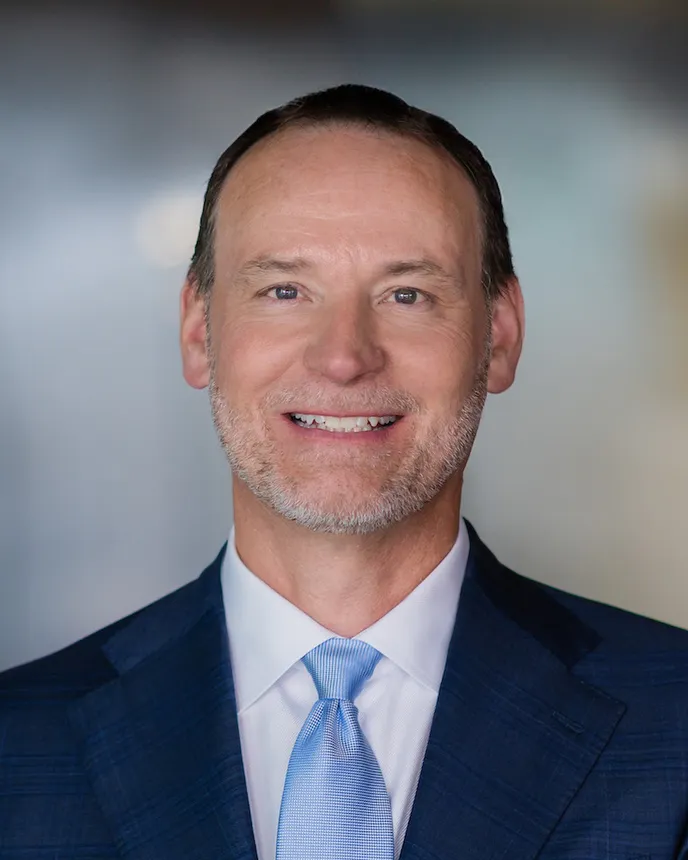Chris Gower wants his transition to CEO to be like The Who’s lyricism — “meet the new boss, same as the old boss.”
Gower, who assumed the helm of Edmonton, Alberta-based builder PCL Construction on Nov. 1, wants the company to stay the course and keep an eye on its core strengths. He takes over following Donald Trump’s election victory amid questions around how the incoming administration’s economic policies will affect the building industry.
PCL, which has its U.S. headquarters in Denver, will continue to look to infrastructure projects as a key part of its building portfolio.
Here, Gower talks about his vision for the company, his outlook on some of the firm’s key building sectors, and his reaction to Trump’s victory.
How has the transition been into your new role as CEO?
It’s like turning a dimmer switch up slowly over the last year. The lights turn brighter and brighter and brighter, and the day that I took over November 1, they just had to go up a little bit more.
I use that phrase to describe it because our succession is very robust, very thoughtful.

Chris Gower
Permission granted by PCL Construction
Dave Filipchuk, the past CEO, now chair of our board, and I have partnered together in my deputy role for the last 12 months. I’ll back up and say even before that, we’ve been in the office of CEO for nine years together, and on the board that long as well.
I hope that nobody feels like there’s a huge change happening. In fact, I’d argue it’s sort of like steering a big ship. There should be no waves.
I showed up, I got a new office and a new parking spot. Beyond that, everything else is the same.
Donald Trump will return to the White House. What is your initial reaction?
People talk about tariffs. Here’s PCL’s perspective.
We look at this on two fronts. One, the election is going to impact the U.S. economy. And we have a very large business in the U.S. The strength of the U.S. economy is important to us on that front.
Then we have a large business in Canada, and the impact of the U.S. on Canada is obvious.
The things that Trump will do and has promised to do can hurt us and help us. I’m not sure today, without knowing how those plans are going to unfold, if it’s neutral, or if it’s positive or negative. We’re looking at it from a number of fronts and we’re tracking how it’s going to impact us in more detail.
In light of the election, what does PCL think about the future of infrastructure funding?
I personally believe infrastructure generally will continue to need to be funded.
If you think about water scarcity and or changes of the water quality in the various places and the demand for water, building water wastewater treatment facilities is not going away.
I don’t think that’s going to change under either administration.
The CHIPS Act or the Inflation Reduction Act could change, and we can’t control that, but what we can control is how nimble and flexible we are in adapting to various new opportunities.
I’d say the best way to do that for any company is to be very diversified, combined with being resilient and agile enough to change and move into markets like manufacturing or data centers, as we have in the past. We’re a large developer of solar because the opportunity exists today. If it changes we will adapt.
But generally, I don’t think there will be a major pullback in infrastructure spend. I think that market will continue to remain strong in the U.S.
PCL has been zeroing in on stadium projects. What are your predictions for the market going forward?
Many of these facilities, some are new, some are aging and need to be replaced, and we don’t see that changing.
Sports facilities in the U.S., in particular with college sports and the demand in the U.S. for proper facilities, alongside unique events like the Olympics, those events drive demand.
We see the sports and entertainment sector as continuously needing to evolve and change as the needs of the customers change. It’s not a one and done.
What other sectors does PCL have its eye on going forward?
Energy transition in the heavy industrial scenario where we see quite a bit of growth with hydrogen and even small modular reactors.
There are a lot of needs across North America and Australia, not to mention solar. That’s where we do work in Australia, with solar, I would say that a lot of those markets are going to grow.
Elements like energy are in the transition, and products that go along with that transition are in more demand, and that’s not going to change.
And obviously we can’t control how some of these things unfold, so we prefer to be on the side of adapting to it as it changes.
Certainly, we’d like to influence it, and we do, to some degree, but it’s more of us reacting to markets and positioning ourselves to provide that service to our customers in the right place.

